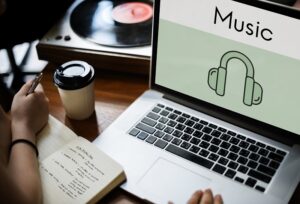In recent years, the integration of artificial intelligence (AI) into creative industries has sparked both excitement and debate. One of the most fascinating areas of innovation is the use of AI to create music. From composing original melodies to producing fully arranged tracks, AI is changing how music is made, shared, and experienced.
What Does It Mean for AI to Create Music?
AI systems are trained on vast libraries of existing music—spanning genres, styles, and eras. These systems learn the patterns and structures that make music work: rhythm, harmony, melody, and instrumentation. Once trained, AI can generate new musical compositions, often indistinguishable from human-made works.
AI doesn’t just replicate existing music—it can create original content, adapt to user preferences, and even collaborate in real time with human musicians. The process usually involves machine learning algorithms, neural networks, and sometimes natural language processing (NLP) for lyric generation.
Tools and Platforms That Use AI to Create Music
Several platforms and tools are leading the way in AI-generated music:
- AIVA (Artificial Intelligence Virtual Artist): A powerful AI composer used in video games, films, and commercials.
- Amper Music: Enables users to create royalty-free music quickly, without needing musical knowledge.
- Google’s MusicLM: A research project focused on generating high-quality music from text prompts.
- Soundraw and Boomy: AI-powered tools for creators who need quick, customizable music for videos, podcasts, or ads.
How AI is Used in Music Creation
The applications of AI in music are broad and growing:
- Composing original songs in specific genres or moods.
- Writing lyrics that follow specific themes, emotions, or rhyme schemes.
- Mastering and mixing tracks automatically for professional-quality sound.
- Real-time collaboration with artists in live performances or studio sessions.
- Personalized music generation based on a listener’s mood or activity.
Benefits of AI in Music Creation
- Accessibility: Makes music creation possible for people without traditional training.
- Speed and efficiency: Produces songs in minutes, streamlining content creation.
- Inspiration: Helps artists overcome creative blocks by offering new musical ideas.
- Innovation: Encourages the development of entirely new sounds and genres.
Challenges and Ethical Considerations
While the potential is exciting, using AI to create music raises important questions:
- Creativity and originality: Can music made by a machine truly be called “art”?
- Copyright and ownership: Who owns a song created by AI—its user, its developer, or no one?
- Impact on human musicians: Will AI tools replace artists or simply become another tool in the creative process?
The Future of AI-Generated Music
The use of AI to create music is still evolving, but it’s clear that it will play a significant role in the future of the music industry. Whether used as a co-writer, a composer, or a producer, AI is becoming a creative partner to musicians around the world. As technology advances, we may see AI not only assisting in making music but also shaping the very definition of what music is.
Conclusion
AI is not here to take the soul out of music. Instead, it’s offering new ways to express it. With powerful tools and limitless possibilities, using AI to create music opens up a new era of innovation—where human creativity and machine intelligence harmonize like never before.








